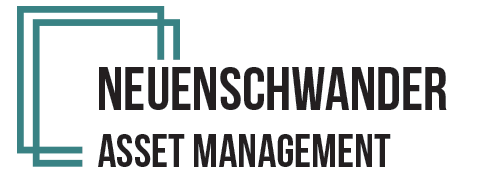For investors who haven’t established an estate plan, there is no time like the present. In the past, many viewed an estate plan as something outside their scope, as if the process was reserved only for the wealthiest among us. The reality is that an estate plan is a must-have, especially for those who want to make an emotional time a bit easier on beneficiaries.
So, what is an estate plan? In the simplest terms, it will dictate what happens to your assets when you pass away. Not a cheery topic. But mortality is real and the end comes for everyone if you give it enough time. Unfortunately, many investors fail to adopt a plan that determines how assets are divvied up when they die.
Confusion often prevents people from taking even initial steps. The legalese can be intimidating, but working with a professional – particularly an estate-planning attorney – is critical to ensure you understand the best way to accomplish your goals. The conversation typically begins with the basics. Do you need a will or a trust? This decision is perhaps the most important, yet there are common misconceptions about what each instrument can accomplish.
While a will allows an individual to dictate who should receive assets, it also involves the state’s probate court in the process. Without getting into gritty details, ask anyone who’s handled a probate estate: the answers generally range from painful to a downright nightmare. While experiences will vary, it can be assumed that every probate case will likely be three things: lengthy, time-consuming and public. Based on these three factors, many planners turn to trusts. Unlike a probate estate, a trust can settle your affairs in a private and more timely manner (though it should be noted that settling any estate requires patience).
But opting for a will or a trust is just the start of the planning process. The conversation will change based on individual circumstances, but here are a few other questions to keep in mind as you consider your plan:
- Have you established a Financial Power of Attorney to ensure someone can handle the finances if you are incapacitated?
- Who will serve as your Medical Power of Attorney when doctors weigh life-or-death decisions about your care?
- Who will serve as your personal representative if you opt for a will? Or the trustee if you establish a trust?
- Who will receive assets upon your passing? Will you leave money to certain family members or friends while omitting others? Are there charitable causes you’d like to support after you’re no longer around to donate?
- Have you updated the beneficiaries listed on assets that pass by contract, such as IRAs and life insurance death benefits?
These are all decisions best made in advance of your death to avoid uncertainty and squabbling when your time comes. Still, they are just a few of the considerations to make when establishing an estate plan. Before starting the process, consult with a professional. Talk to an estate-planning attorney to make sure your legacy doesn’t devolve into chaos.
Tim Neuenschwander, CPA, CFP® is the managing member of Neuenschwander Asset Management, LLC. You can click on his name to visit his LinkedIn profile or you may contact him via email at tim@namadvisors.com.


 Christine joined the NAM team in 2020, along with her six-plus years of Administrative and Executive Assistant experience. She was born and raised in Wisconsin. She has a love for film, comedy writing, and music, particularly between the 50’s and 80’s.
Christine joined the NAM team in 2020, along with her six-plus years of Administrative and Executive Assistant experience. She was born and raised in Wisconsin. She has a love for film, comedy writing, and music, particularly between the 50’s and 80’s. During my salad days, I studied business at the University of Minnesota and the Carlson School of Management. Taking this route seemed to make sense when I graduated high school, as it offered the opportunity to pursue a career in business. However, the experience didn’t go as planned. I found myself disillusioned by the focus and teachings of business school, with many of the lessons revolving around detached relationships focused solely on profit. I eventually concluded that this was not my personal path. I chose instead to purse a passion – writing – and veered off into journalism for the next six years of my life.
During my salad days, I studied business at the University of Minnesota and the Carlson School of Management. Taking this route seemed to make sense when I graduated high school, as it offered the opportunity to pursue a career in business. However, the experience didn’t go as planned. I found myself disillusioned by the focus and teachings of business school, with many of the lessons revolving around detached relationships focused solely on profit. I eventually concluded that this was not my personal path. I chose instead to purse a passion – writing – and veered off into journalism for the next six years of my life.